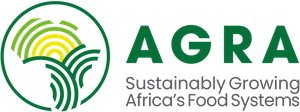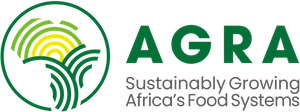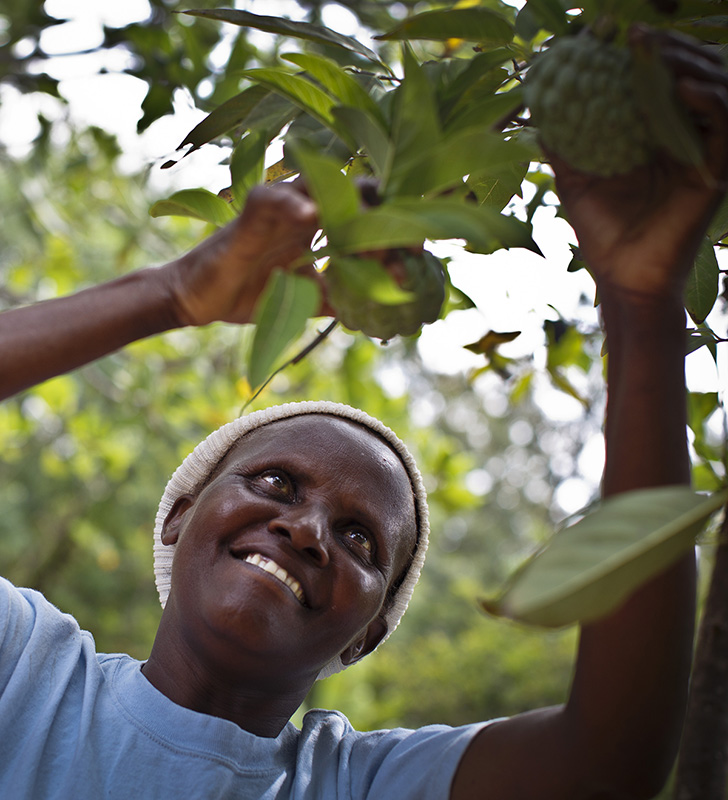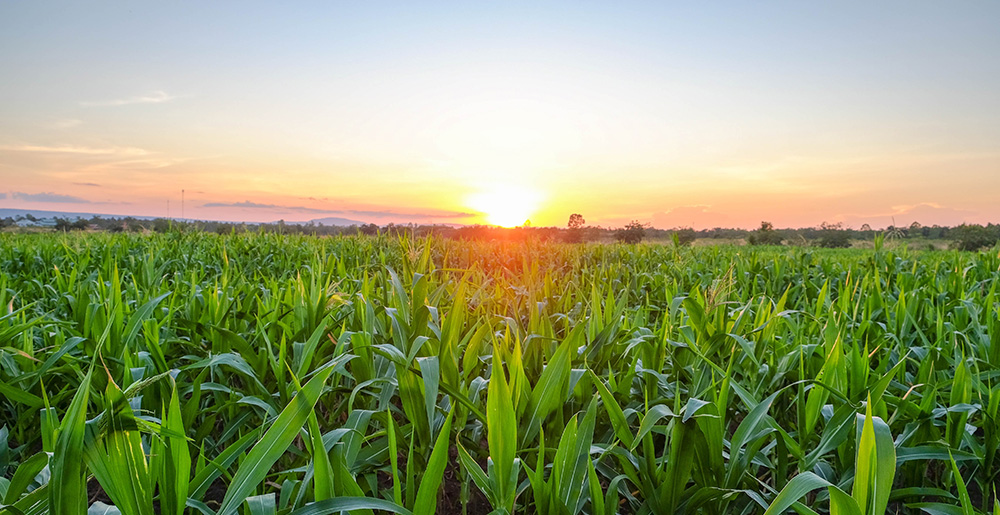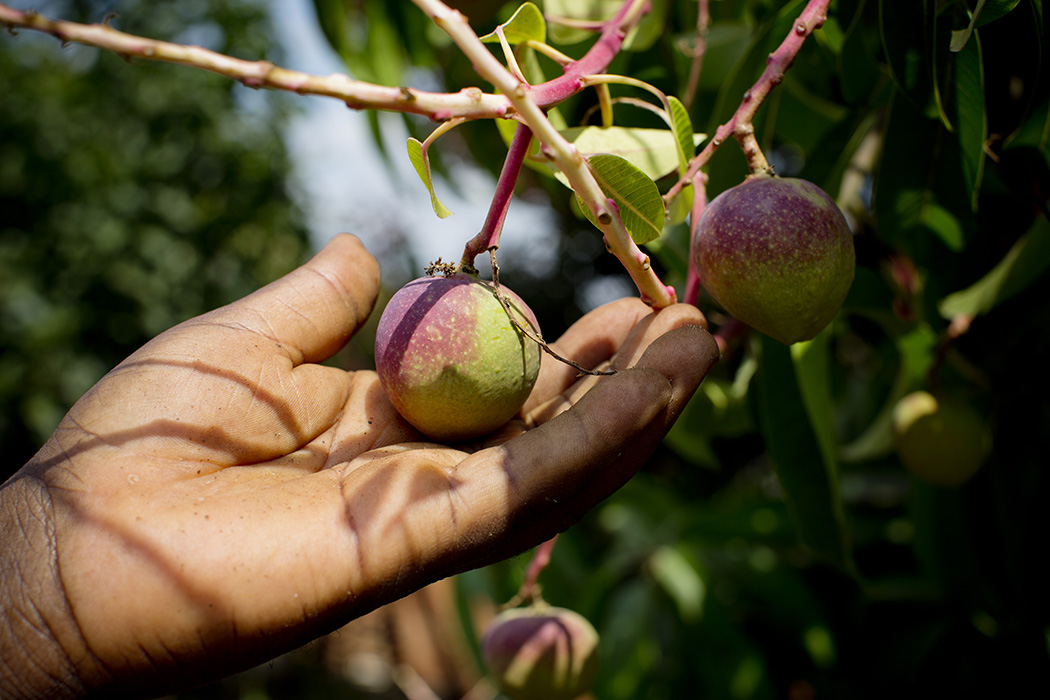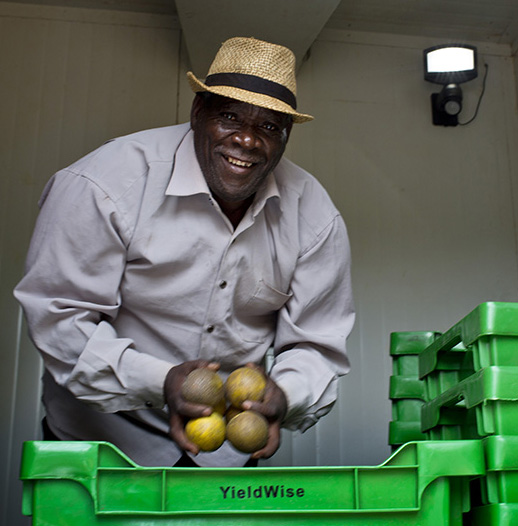Four years ago, in 2015, the then 17-year old Rosário Avelino Timóteo from Malapa, Ribáuè District in Nampula Province, set out to cultivate 10 hectares (ha) of maize. “I could not afford certified seed,” he recalls, opting instead to plant locally available seed that his grandmother offered him. Rosário harvested 12 tons of produce, which he sold in the local market for 20 Mtn/kg (US$ 0.32/kg) earning a total of about 220,000 Mtn (US$ 3,495).
In the following season, 2016/2017, Rosário invested the money from the previous maize sales to buy certified maize seed, but the crop was attacked by Fall Armyworm (Spodoptera frugiperda). Unable to control the pest, he incurred huge losses, harvesting only 17 tons from the 10ha that he sold at 17 Mtn/kg (US$ 0.27/kg), a much lower price than the previous season.
Now 21 years old, Rosário is no-less adventurous about his farming enterprise, but he is smarter now and armed with sound advice and a strong support team to back him up. Eager to learn from the misadventure of the previous season, he listened keenly to his friends who told him to try diversifying into soybean production. He wasted no time and bought certified soybean seed developed by the International Institute for Tropical Agriculture (IITA). With soybean seed in hand, and on the way to his farm, Rosário met Nércia das Neves from the Otumiha Project, an AGRA-supported partnership on Community Agribusiness Entrepreneurship implemented by a consortia of partners in Nacala Corridor since December 2017. When Nércia invited Rosário to become a Community Agribusiness Entrepreneur (CAE), also known as Village-Based Advisor (VBA), he promptly accepted the opportunity.
Since then, he has participated in trainings and had access to inputs to support his soybean production. “When I became a CAE, my life changed overnight,” adds Rosário, “When I joined the Otumiha Project many opportunities opened up for me.” For instance, he now has contracts with buyers and schedules production to meet their demands.
Rosário was also linked to Losan Farms, a small and medium-sized enterprise (SME) that loaned him 400,000 Mtn (US$ 6,354) to aggregate his produce and buy more from other farmers. Rosário managed to deliver a total of 20 tons of produce to Losan Farms that year.
“I had never handled such an amount of money before,” says Rosário, “I was very excited but also highly conscious to meet the lender’s expectations.” Thereafter, Otumiha Project and Rosário drew up a strategy to enable more farmers benefit from business networks and opportunities arising.
Currently, Rosário is in touch with 437 farmers in his area. “I have created a bond of familiarity with my fellow farmers and we are all excited about our relationship with the soybean buyer.”
“These networks allow synergies among the farmers I work with that will grow soybean production to about 120 hectares,” says Rosário. By agreement, the farmers will sell their soybean to Rosário at 19 Mtn/kg (US$ 0.30/kg), which he in turn will sell to Losan Farms at 21 Mtn/kg (US$ 0.33/kg). Rosário expects to earn a margin of 2 Mtn/kg (US$ 0.03/kg) for offering technical assistance to the farmers.
He emphasizes the importance of the role played by the Otumiha Project in his community. “Farmers no longer struggle to find buyers who pay a good price for their produce,” he adds, “Otumiha Project strengthens ties with small and medium enterprises and assists farmers to expand their acreage with better production techniques in response to the market demands.”.
Otumiha project is implemented in Nacala corridor by 3 consortium members: MIRUKU COOP (SME development and market linkage); AENA (extension and farmers’ organizations capacity building); and AGMARK MOZAMBIQUE (agro-dealer development). The project goal is to contribute to the improvement of food security and livelihoods of the smallholder farmers and their families in the Nacala corridor through an inclusive market systems approach, working in the targeted value chains but looking beyond individual value chains to identify leverage points that bring about catalytic and systemic changes. The project focus is on: Creation of local capacity to SMEs (agro-dealers/traders, processors and out-grower firms), farmers, and farmer’s organization to strengthen managerial capacity and market linkage; Technical assistance to farmers to ensure increased productivity and income through improvement of research, extension, seeds and other inputs (e.g. fertilizers, inoculants, etc.) distribution in the maize and soya bean value chain.
